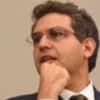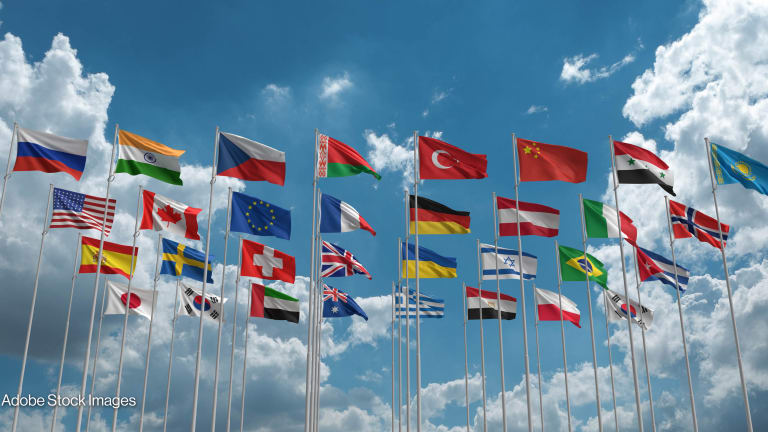
The world’s fragile countries are at the center of the global development crisis. By 2030, the endpoint of the Sustainable Development Goals, an estimated 85 percent of the world’s extreme poor will live in these volatile places.
At a prior U.N. High-level Political Forum, the U.N. Secretary-General António Guterres noted that despite global progress, fragility was on the rise and that better development was critical to prevent conflict and crises and help build resilient societies.
Guterres has taken steps to overhaul the United Nations’ development system to accelerate progress toward the SDGs. This has involved, under the leadership of Deputy Secretary-General Amina Mohammed, the establishment of the new U.N. Development Coordination Office, or DCO, and a revamping of the U.N. resident coordinator system.
The success of these reforms will require new “software” for U.N. leadership in the field, especially in fragile contexts where the operating contexts are more complex, fluid, and difficult.
How to get funds into conflict zones
Experts offer up advice on how NGOs can avoid getting tangled up in restrictions when sending funds to high-risk areas.
To help write this new “software,” DCO is using the U.N.’s first leadership framework. The framework, in part, demands new ways of working, operationalized in three main capability areas, or “ACT:”
• Adapt: To rethink complex, multidimensional problems and construct tailored solutions based on local contexts.
• Collaborate: To connect networks and solve collective action problems through new ways of coordination.
• Transform: To change behaviors that focus on long-range positive impact and scalable solutions.
Applying this capabilities model will require a shift in the functions that U.N. leaders and staff perform, and in the underlying mindsets, behaviors, operational culture that fuel these functions.
Per the framework, U.N. leaders must not serve simply as program implementers, but as dynamic “conveners and connectors” within the broader development community to increase cooperation and impact. Nowhere is applying these leadership capabilities more urgent than in fragile contexts.
We outline three ways in which we are leveraging the U.N. leadership framework within broader U.N. development system reforms to deliver on Guterres’ vision of better development in the hardest places.
Functional leadership
Translating the ACT leadership principles into practice in fragile countries will require a new set of functional tasks for U.N. field leadership to perform.
In fragile contexts, there is an increasingly recognized need for the following ways of working:
• Establishing country-led coordination platforms to solve collective action problems between governments, stakeholders, and partners for development, and to improve dialogue, mutual accountability, and resource mobilization.
• Creating country-level instead of sector-siloed resilience plans to mobilize state and societal capacities to deal with disasters, conflict, and poverty, and tackle their root causes.
• Using adaptive methods for tailoring policy and programs to specific problems, contexts, and crisis instead of relying on foreign “best practices” and rigid modes of implementation that are inflexible in the face of crisis or contextual variation.
• Adopting multipurpose scaling approaches that use the development process of meeting widespread need to also build resilience at scale and help tackle root causes by changing patterns of inclusion and cooperation.
These new ways of working constitute functional tasks that U.N. leadership can undertake to deliver on these principles and improve impact in fragile contexts. Importantly, these functions must be undertaken together in a mutually reinforcing fashion.
Coordination platforms or “collaborative spaces” can help solve collective action problems among stakeholders, but if they are not adaptive and agile, they can become straightjackets of top-down planning and aid conditionality, which undercut the agency of governments and societies to find their own solutions to complex problems.
Adaptive methods that do not operate at scale will fail to address the magnitude of complex development challenges. Development plans that only pursue poverty reduction and growth but do not build resilience to risks and crises will keep these countries in a fragility trap.
The U.N. resident coordinator system is uniquely positioned through its mandate to support governments and convene international partners to exercise these functions for greater development cooperation.
Lead with first movers
To leverage its mandate, the U.N. is continuing to move beyond internal facing reforms and rallying like-minded partners to facilitate new forms of dialogue and collective action between governments, societies, and international partners in fragile countries.
Many development partners have taken steps to promote more effective ways of working in fragile contexts. These include g7+, AfDB, EU, World Bank, OECD, and NGOs alongside the U.N.’s efforts.
Similarly, many partners and experts are advancing the field of “adaptive development” through approaches such as “problem driven iterative adaptation,” strategy testing, the science of delivery, and adaptive learning, as well as new scaling frameworks in fragile countries.
The U.N. resident coordinator system is helping to bring various “first mover” partners together with governments, civil society, and the private sector to shape new patterns of cooperation and impact in fragile contexts. To ensure success, the U.N. recognizes that it must retool its own capabilities and operating cultures.
Lean into experiential leadership
New U.N. leadership capabilities cannot be fostered simply through training, simulations, and workshops. They must take root through experiential leadership, otherwise known as “learning by doing,” with U.N. teams reimagining “collaborative spaces,” cultivating adaptive partnerships, and testing new leadership approaches.
To advance this approach, the U.N.’s new SDG leadership lab has been designed to help U.N. country teams in two important ways.
Q&A: The World Bank's pivot to fragile states
The World Bank wants to move earlier into conflict-affected and fragile countries with more funding, more staff, and a mandate to focus on prevention, according to the institution's Franck Bousquet.
First, the lab provides a permissive environment for U.N. field leadership and national partners to actively experiment with new ideas and systems approaches without risk of deviating from course.
Second, the lab stimulates new thinking outside conventional practices, worldviews, and operational “comfort zones” to address complex development challenges, and support reformers as they iterate, stumble, and adapt to find new solutions and “learn by doing.” Adopting new methods to achieve the SDGs in fragile contexts requires space for experimentation and learning.
There are no fixed pathways out of fragility. The journey is often long, contested, violent, and uncertain. For the U.N. to help countries overcome their fragile predicaments, DCO is helping to chart a new leadership role for U.N. field leaders. This will ultimately require a deeper level of organizational transformation that is driven by new leadership principles, functional priorities, and capabilities.
A widening number of governments and development partners are working toward more resilient, adaptive, and coordinated responses, but progress remains slow, tenuous, and uneven. U.N. leadership transformations can facilitate new ways working and accelerate collective action on the ground to “leave no one behind.” The time to “ACT” is now.
The views expressed by the authors do not necessarily reflect those of any organization or entity.
Update, April 5, 2019: This article has been updated to reflect the new name of the U.N. Development Coordination Office, or DCO.









